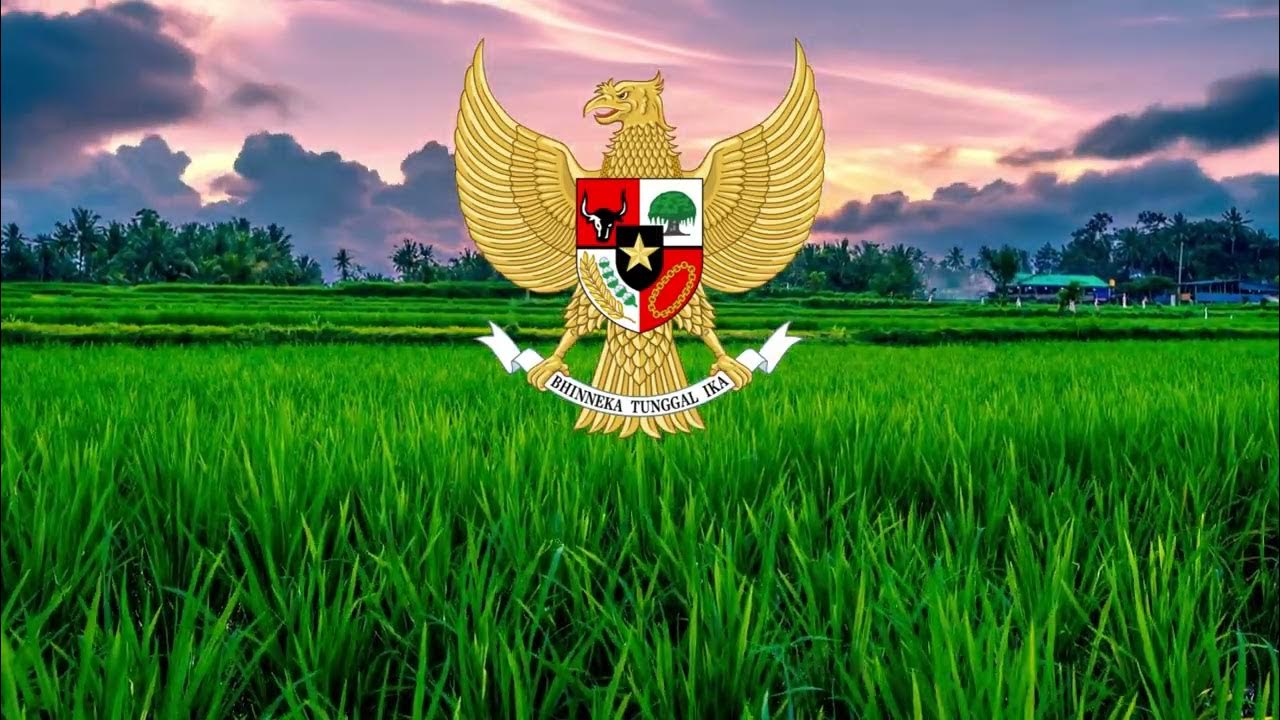PERUMUSAN & PENETAPAN PANCASILA SEBAGAI DASAR NEGARA | RANGKUMAN MATERI | PKN KELAS 7 | BAB 1
Summary
TLDRThis video script explores the historical formation of Indonesia's foundational principles, the Pancasila, which were established during the BPUPKI and PPKI meetings in 1945. It highlights the contributions of key figures like Dr. Radjiman Wedyodiningrat, Ichibangase Yoshio, and Raden Panji Suroso in shaping the nation's governance. The script details the drafting process of the state's foundational laws, culminating in the adoption of the 1945 Constitution and the appointment of Soekarno and Hatta as President and Vice President, respectively.
Takeaways
- 😀 The script discusses the educational significance of YouTube in providing enjoyable learning experiences about the summary of material discussions and information on educational topics.
- 🏛️ The establishment of Pancasila as the foundation of the Indonesian state was outlined, following Japan's control over the region after the Dutch surrender at Kalijati Subang on March 1, 1945.
- 📚 The formation of BPUPKI (Preparatory Committee for the Independence of Indonesia) was initiated by Japan, which included 67 members from both Indonesia and Japan, led by Dr. Radjiman Wedyodiningrat.
- 🗓️ BPUPKI held two sessions, the first from May 29 to June 1, 1945, and the second from July 10 to 17, 1945, to discuss the state's foundation and draft the constitutional law.
- 📍 The BPUPKI meetings took place in the Central Sangi Building, now known as the Pancasila Building, located at Pejambon No. 6, Jakarta Central.
- 📝 Three key figures, Muhammad Yamin, Soepomo, and Engineer Soekarno, proposed different formulations for the state's foundation, emphasizing national unity, humanity, and social welfare.
- 🔍 A smaller committee, known as the 'Panitia Sembilan' or 'Nine Committee,' was formed to consolidate the proposals into a draft preamble for the constitutional law.
- 📜 The draft preamble, known as the 'Mukadimah' by Soekarno, 'Piagam Jakarta' by Muhammad Yamin, and 'Gentlemen's Agreement' by Sukiman Wirjosandjojo, was agreed upon by BPUPKI on July 14, 1945.
- 🛠️ On August 18, 1945, the PPKI (Preparatory Committee for the Independence of Indonesia) was formed, with Soekarno appointed as its chairman and Mohammad Hatta as his deputy.
- 🏆 The PPKI's tasks included establishing the '1945 Constitution', electing Soekarno and Hatta as President and Vice President, and forming the Central Indonesian National Committee.
- 📢 The script concludes with an encouragement for viewers to subscribe to the channel for more educational content, like, and share the video.
Q & A
What is the significance of the BPUPKI in Indonesian history?
-The BPUPKI, or the Investigative Body for the Preparation of Indonesian Independence, played a crucial role in formulating the principles and structure of the Indonesian state after Japan's surrender, laying the groundwork for the country's independence.
Who was the chairman of the BPUPKI?
-Dr. Radjiman Wedyodiningrat was the chairman of the BPUPKI, leading the discussions and preparations for the establishment of an independent Indonesia.
What were the two main sessions of the BPUPKI focused on?
-The first session from 29 May to 1 June 1945 focused on discussing the national principles, while the second session from 10 to 17 July 1945 was about the draft of the constitution.
Where were the BPUPKI sessions held?
-The BPUPKI sessions took place in the Central Building, which is now known as the Pancasila Building, located at Pejambon No. 6, Jakarta Central.
What is the Pancasila?
-The Pancasila is the philosophical foundation and the state philosophy of Indonesia, which includes five principles: Belief in One Supreme God, Just and Civilized Humanity, Unity of Indonesia, Democracy led by the wisdom of representative deliberation, and Social Justice for all Indonesian people.
What were the three main proposals for the state principles presented during the BPUPKI sessions?
-The three main proposals were from Muhammad Yamin, Soepomo, and Insinyur Soekarno, each presenting different principles but sharing a common vision for the Indonesian state.
What was the role of the 'Panitia Sembilan' or 'Nine Committee'?
-The 'Panitia Sembilan' was a smaller committee formed within the BPUPKI, tasked with investigating and drafting the opening of the constitution, which later became known as the 'Piagam Jakarta' or 'Jakarta Charter'.
What was the final form of the state principles after the second BPUPKI session?
-The final form of the state principles included five points: Monotheism with the obligation to implement Islamic law for its followers, Just and Civilized Humanity, Unity of Indonesia, Democracy led by wisdom in representative deliberation, and Social Justice for all Indonesian people.
What changes were made to the original state principles during the PPKI session on 18 August 1945?
-The first principle, originally stating 'Monotheism with the obligation to implement Islamic law for its followers', was changed to 'Monotheism which is holy and exalted', reflecting a more inclusive approach to the state's religious principles.
What was the PPKI and what were its main tasks?
-The PPKI, or the Preparatory Committee for Indonesian Independence, was formed after the BPUPKI was dissolved. Its main tasks included establishing the 1945 Constitution, electing the President and Vice President of Indonesia, and forming the Central Indonesian National Committee.
Outlines

This section is available to paid users only. Please upgrade to access this part.
Upgrade NowMindmap

This section is available to paid users only. Please upgrade to access this part.
Upgrade NowKeywords

This section is available to paid users only. Please upgrade to access this part.
Upgrade NowHighlights

This section is available to paid users only. Please upgrade to access this part.
Upgrade NowTranscripts

This section is available to paid users only. Please upgrade to access this part.
Upgrade NowBrowse More Related Video

Sejarah Pembentukan BPUPKI dan PPKI, Lembaga Penting dalam Perjuangan Kemerdekaan Indonesia

Rangkuman Materi PKN Kelas 7 Bab 1 | Perumusan dan Penetapan Pancasila Sebagai Dasar Negara

SEJARAH LAHIRNYA PANCASILA

Sejarah Pembentukan BPUPKI dan PPKI

PANCASILA DALAM ARUS SEJARAH BANGSA INDONESIA

Fighting Forgetfulness - The History of the Birth of Pancasila as the State Foundation
5.0 / 5 (0 votes)